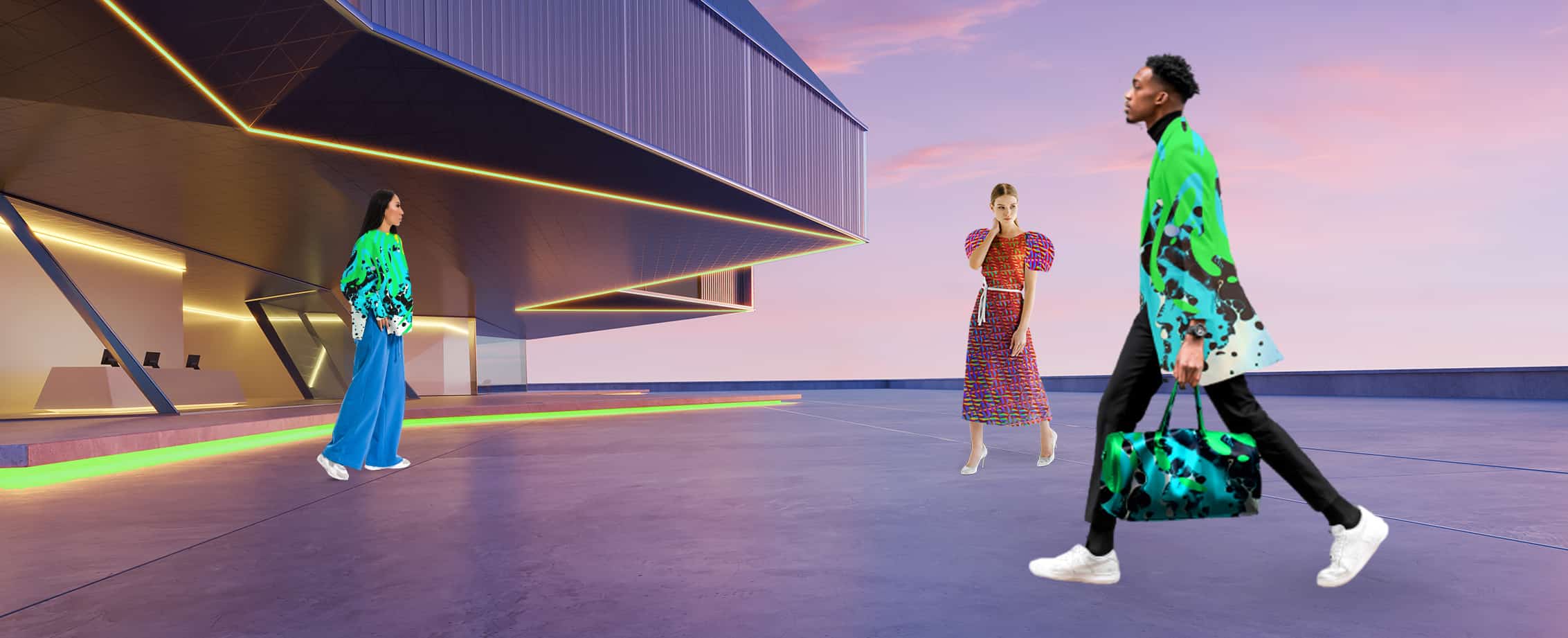It’s no secret that fashion is a huge industry. But what you may not know is that fashion is starting to move into the digital world, with fashion shows and clothes being sold online. And the metaverse is playing a big role in this shift.
Industry leaders
Big luxury names like Gucci, Burberry and Tommy Hilfiger have all invested in their own digital assets. Building digital worlds to host fashion show, stores that can be navigated in virtual reality and event their custom branded computer games, these brands are looking to the future of customer engagement. Understanding that luxury is about the experience as well as the products, tapping into digital experience targets are a younger demographic who expect brands to be more interactive and engaging that generations before them.
Increase sales
There are several reasons fashion loves the metaverse. One reason is because fashion brands are able to sell digital fashion items that look just as good as real world fashion. Creating these digital assets is a fraction of the cost of creating the physical alternative and is virtually free to replicate over and over for new purchases. This means that is a massive potential scale a brands digital market while keep the associated production costs low, which is a very exciting prospect for any business.
Virtual Fashion Shows
Fashion shows can also be done in virtual reality, where people aren’t limited by time and space constraints. Hold your show in space, on top of a mountain or floating on a ship in sky, the opportunities are endless and the most creative brands are relishing the challenge to out-do their competitors in this unlimited universe. The models wearing the items don’t even need to be human, adding an extra layer of interest for the viewers when they see their favorite brands being walked down the catwalk worn by a teddy bear.
Accessibility
This freedom of expression and digital world creation is compliment by the accessibility of the metaverse. A typical luxury catwalk is a ticket only event with only limited seats in the venue, making them very exclusive and hard to come by. The metaverse is online and the venue capacity is infinite, so the anyone anywhere can attend and rub digital elbows with some of the most respected people in fashion without being limited by their demographic or geography. This opens up the luxury world to a much larger audience, increasing awareness of the latest trends on a global scale, and yet again, with a much lower production cost compared to a physical fashion show.
Digital marketplace
Another benefit of hosting a fashion show in the metaverse using digital assets is that you can integrate an eCommerce platform into the show and customers can purchasing the digital items right there and then. Some brands have even decided to dip their toes into the world of cryptocurrency for one off items, offering them up as a minted NFT (non-fungible token) which can only have 1 owner. NFTs are then auctioned of to the highest crypto bidder who will be officially registered as the owner of the asset.
Conclusion
Overall, it’s easy to see that fashion is moving towards the metaverse. The reduced cost of product and increased visibility provide a massive market opportunity that cannot be missed. Any brands that are slow to react and delay joining the wider metaverse or even building their own mini-metaverse is going to fall behind the competition in years to come.



